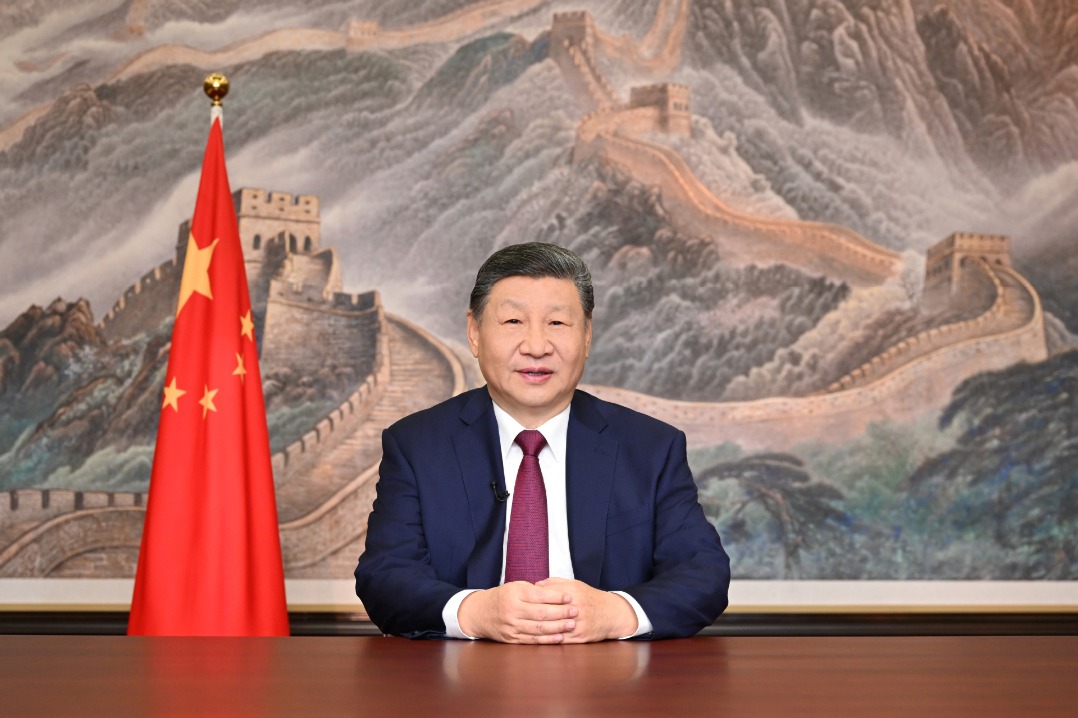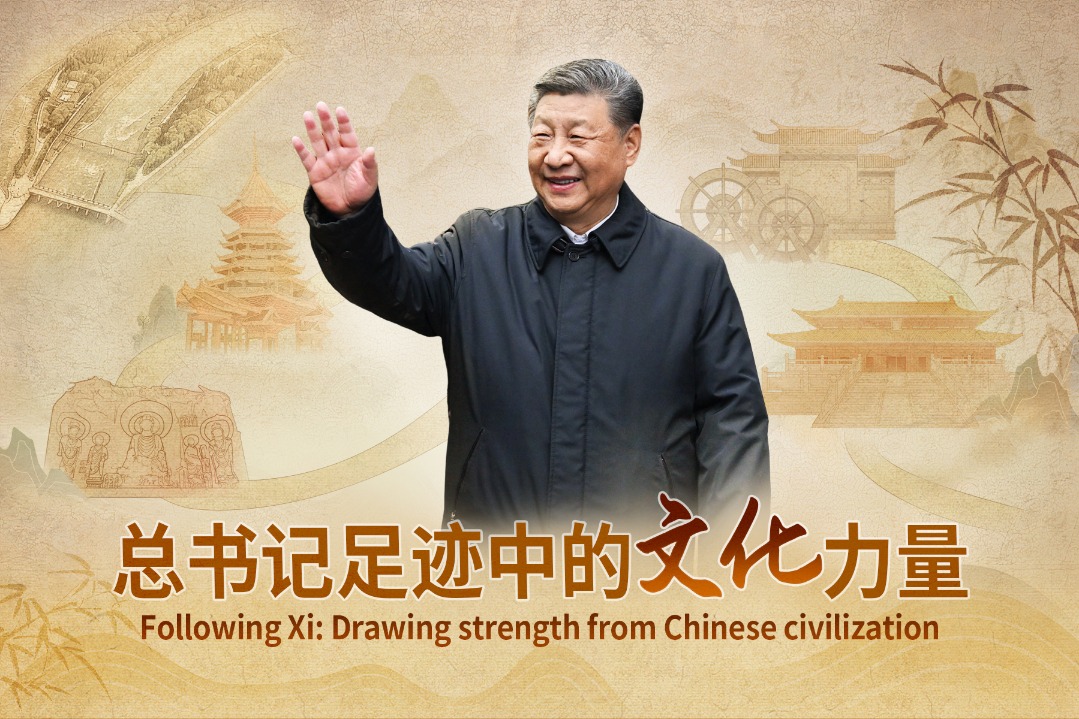Long-term smart solutions needed

Sino-European collaboration can help foster, strengthen global sustainability
Premier Li Keqiang's visit to Europe provides an excellent opportunity to begin a process that can make the Sino-European collaboration an axis for global sustainability.
Li's visit will be influenced by two current events, the extreme pollution in many Chinese cities and the economic recession in Europe. These two challenges combine two interesting aspects. First, they engage the general public, as they see and suffer from the direct consequences. Second, both problems are linked to an unsustainable economic development that requires transformative solutions.
So far the underlying challenges have not been discussed very much in mainstream media. The undisputed, but dramatic fact is that human civilization itself is at risk due to the economic development currently pursued. Scientists agree that climate change, pandemics, collapsing eco systems, bio-weapons and so on, already pose a threat on a planetary scale that is so serious that it is difficult to comprehend. If left unchecked, these challenges, or a combination of them, are examples of risks that can become so serious that they destroy our civilization.
Instead of feeling depressed, we can see this challenge as something positive, as an indicator of human ingenuity. The capacity that can bring about such powerful, but destructive, development can also be turned into something equally powerful, but sustainable.
In order to unleash the positive opportunities, a new Sino-European collaboration should deliver on short-term challenges, but also on the - so far largely ignored - long-term vision.
In the short term, the EU should make sure that barriers, and threats, against smart solutions from China are removed permanently. The EU has a track record of talking a lot about sustainability leadership, but when China picks up speed and helps the world the EU tends to block it. It happened earlier with energy efficient light bulbs, the very symbol of smart energy use, where the EU punished imports of such light bulbs from China.
Today the EU is threatening the global solar industry's development and thereby undermining low-carbon development by doing the same thing against solar PV, the very symbol of a clean energy future. Instead of thanking and supporting China's efforts to accelerate the development of tomorrow's solutions, the EU has tried to block it over and over again; this must stop.
China, on the other hand, should review the focus on improved market access in resource-heavy and polluting industries and not fight attempts in the EU to reduce emissions, for example, from flying something that helps increase the use of virtual meetings.
Such a strategy will lock China into a resource inefficient economy that sees measures to reduce emissions as a threat instead of a driver for innovation. China must be more transparent and clearly communicate its intention to accelerate a low-carbon development beyond incremental improvements and also show this when visiting Europe, as few in Europe are aware of the many existing initiatives in China.
To establish a more long-term agenda, China and Europe could develop a joint smart solutions development plan. This plan should be based on collaboration and accelerated uptake of smart solutions with the help of public procurement as well as a reduction of trade/investment barriers. A joint Web portal could be established where the progress in smart solutions development and implementation is reported.
As part of the smart solutions development plan three areas in particular could be explored:
Global governance: The current global governance system was created in another time to meet other challenges. It is time to start exploring how a fundamentally revised global governance system could address current and emerging threats, as well as support new opportunities. Organizations like CASS in China and the Global Challenges Foundation in Europe are already working in related fields and could help lead the way with new high-level collaborative initiatives if they are supported.
Long-term smart solutions: Current structures tend to promote incremental improvements in existing systems and few initiatives exist that support new clusters that provide transformative solutions. The EU and China should explore ways to encourage clusters that provide the transformative solutions needed in ways that allow 10 billion people, the approximate population by 2050, to live a good life.
In order to support smart solutions we must also rethink the measures we use. For example, instead of looking at the number of flights and physical goods moving between China and the EU as a sign of collaboration, new tools must be developed that can measure the number of video meetings and ideas that are shared though digital channels.
Values in the 21st century: Current values in society are dominated by a simple hunger for more material things. Advertising and PR as well as economic theories encourage such values with focus on material consumption. This made sense 50 years ago, but in a world where more people suffer from obesity than malnutrition and when media is filled with trivial entertainment it is time to take a step back and discuss what values in life are really important.
In Europe, Chinese concepts, both ancient and modern, should be part of the curriculum in schools as these help students to reflect and look beyond simple urges. In China, media should pay more attention to smart sustainable lifestyles in Europe rather than focus on the most unsustainable lifestyles and call them glamorous.
An initiative could be launched where Chinese teahouses are introduced in major European cities to spread knowledge about Chinese wisdom and provide a place for reflection. In a similar way, vegetarian restaurants with slow food from Europe could be introduced in China as an alternative to the very unsustainable fast food restaurants that are destroying the planet and making people fat.
To establish the Sino-European collaboration as an axis for global sustainability will not happen overnight, but if both sides begin to open up for such an approach, Li's first trip to Europe as a premier could become a historic one that heralds the start of a new chapter in Sino-European collaboration.
The author is founder of Sweden-based consultancy 21st New Frontiers. The views do not necessarily reflect those of China Daily.
(China Daily 05/24/2013 page7)
Today's Top News
- Full text: Chinese President Xi Jinping's 2026 New Year message
- Poll findings indicate Taiwan people's 'strong dissatisfaction' with DPP authorities
- Xi emphasizes strong start for 15th Five-Year Plan period
- PLA drills a stern warning to 'Taiwan independence' separatist forces, external interference: spokesperson
- Xi, Putin exchange New Year greetings
- ROK leader's visit to help boost bilateral ties






























